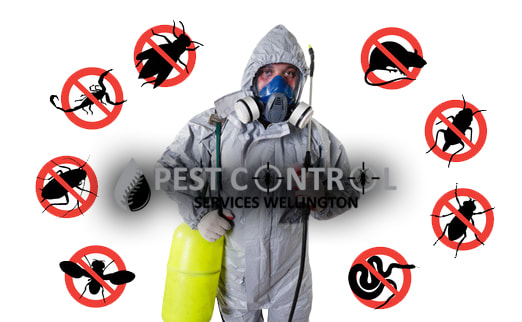Pest Control Clovis Professionals: Safeguarding Your Family and Home
Pest Control Clovis Professionals: Safeguarding Your Family and Home
Blog Article
Understanding the Different Approaches to Pest Control: A Comprehensive Guide

All-natural Bug Control Techniques
Utilizing green strategies such as companion growing and organic pest control is necessary for properly taking care of pests in farming settings. Friend planting includes expanding different crops in closeness to hinder bugs, enhance nutrient uptake, and boost general plant health and wellness.
Organic insect control entails presenting all-natural killers or pathogens to control pest populaces. Ladybugs, as an example, prey on aphids, regulating their numbers without the need for chemical pesticides. An additional instance is using Bacillus thuringiensis (Bt), a bacterium that targets certain insect bugs while being safe to people, pets, and advantageous insects.
These environmentally friendly methods not just decrease the reliance on synthetic chemicals but additionally help maintain biodiversity and soil health and wellness. By incorporating natural parasite control techniques right into agricultural techniques, farmers can achieve lasting pest administration while reducing adverse effect on the atmosphere.

Chemical Insect Control Solutions
Along with natural bug control approaches, the application of chemical parasite control services plays a considerable function in properly taking care of pest populations in agricultural atmospheres. Chemical insect control services are developed to target certain bugs that may cause substantial damages to plants. These remedies typically have artificial chemicals that are designed to get rid of bugs swiftly and efficiently.
Among the key advantages of chemical parasite control remedies is their effectiveness in managing pest problems on a huge scale. Farmers can use these solutions utilizing numerous techniques such as spraying, fumigation, or seed treatment to safeguard their crops from hazardous bugs, weeds, and diseases. Additionally, chemical insect control options are fairly very easy to apply and can give rapid outcomes, aiding farmers safeguard their returns and reduce financial losses.
Nonetheless, it is vital to utilize chemical pest control remedies sensibly to minimize prospective negative influence on the environment, non-target microorganisms, and human health. Proper application techniques, adherence to safety and security standards, and regular surveillance are important to guarantee the responsible usage of chemical parasite control options in farming methods.
Organic Pest Control Approaches
Organic bug control approaches leverage all-natural predators or virus to take care of pest populations in agricultural settings successfully. This approach supplies a lasting and environment-friendly remedy to pest monitoring, decreasing the reliance on synthetic chemicals and decreasing damage to the setting. One typical organic control approach is the introduction of all-natural enemies, such as ladybugs or parasitical wasps, to target particular pests. These killers prey on the insects, aiding to regulate their populaces normally - pest control clovis.
One more biological control technique involves utilizing pathogens like fungis, bacteria, or infections to infect and kill pests. Generally, biological insect control techniques provide visit their website a sustainable and targeted remedy to pest administration in farming.
Integrated Bug Management (IPM)
Integrated Parasite Management (IPM) is a thorough strategy that integrates numerous bug control methods to efficiently handle and lessen pest populations in agricultural systems. IPM focuses on long-lasting avoidance of parasites through a mix of biological, cultural, physical, and chemical control techniques. By incorporating these various strategies, IPM intends to reduce reliance on chemical pesticides, minimize environmental influence, and promote sustainable insect monitoring practices.
One key element of IPM is making use of organic controls such as natural predators, parasites, and microorganisms to manage insect populaces. This approach harnesses the power of nature to maintain a balance between go to website bugs and their natural opponents without creating injury to the atmosphere.
Furthermore, IPM includes cultural techniques like plant habitat, sanitation, and rotation adjustment to create unfavorable conditions for insects and interrupt their life cycles. Physical controls such as catches, barriers, and composts are additionally used to avoid bug problems.
Physical and mechanical Bug Control Methods
Utilizing non-chemical methods, such as mechanical and physical pest control methods, is a vital facet of thorough bug management techniques, developing upon the foundation of Integrated Pest Administration's alternative strategy. Mechanical parasite control involves making use of physical obstacles or traps to avoid pests from accessing and harming plants or frameworks. This approach can consist of techniques like mounting displays on home windows, making use of row covers in farming, or using sticky traps to catch insects.
Physical insect control methods, on the various other hand, focus on directly eliminating insects with physical methods. As an example, utilizing heat therapies to remove bed bugs or vacuuming up parasites like crawlers or ants can be effective means to handle problems without making use of chemicals. By including these mechanical and physical insect control strategies into an Integrated Parasite Monitoring strategy, professionals and people can minimize reliance on pesticides while still efficiently handling pest populaces and lessening damages.
Final Thought

In enhancement to natural insect control techniques, the application of chemical pest control services plays a significant function in effectively managing pest populaces in agricultural atmospheres.One of the vital advantages of chemical insect control services is their effectiveness in regulating insect problems on a big range.Integrated Insect Monitoring (IPM) is a detailed technique that integrates various insect control strategies to efficiently handle and decrease pest populations in farming systems.Making use of non-chemical methods, such as mechanical and physical insect control techniques, is a critical aspect of thorough insect monitoring strategies, building upon the foundation of Integrated Pest Administration's alternative method. By including these mechanical and physical parasite control strategies into an Integrated Pest Administration strategy, experts and individuals can minimize dependence on chemicals while still successfully handling pest populations and reducing damage.
Report this page